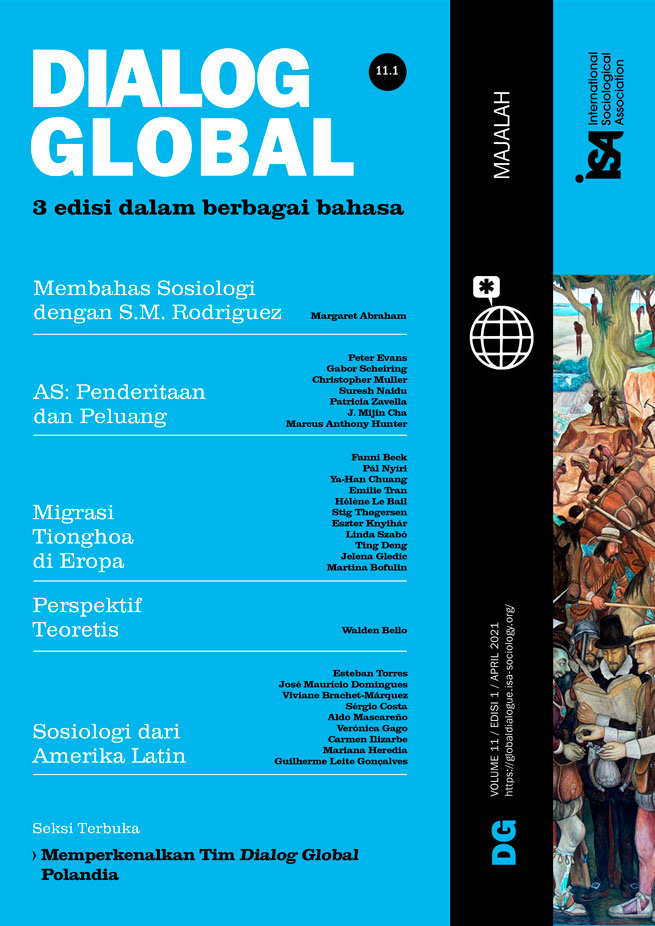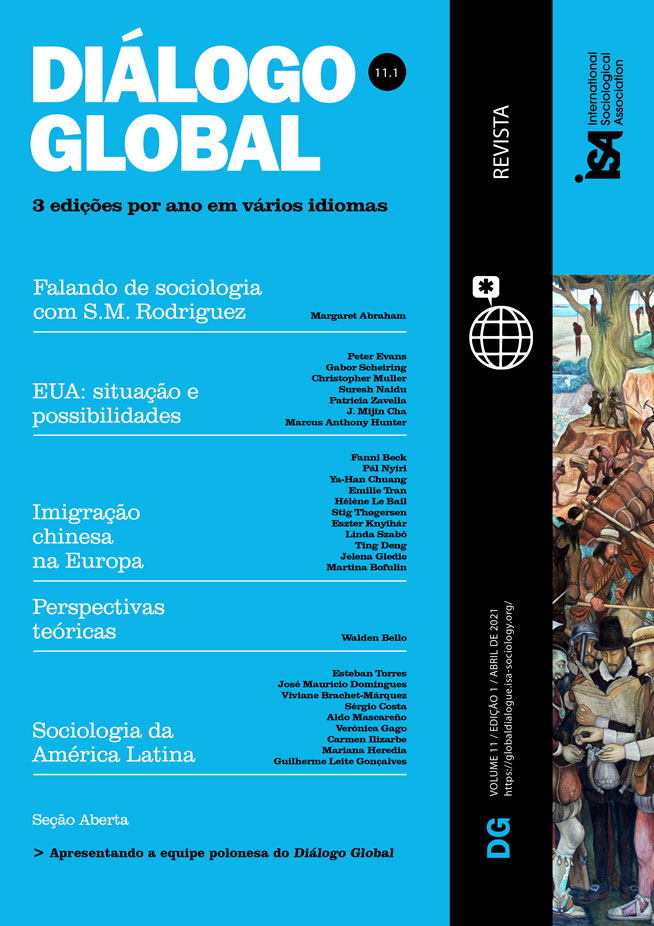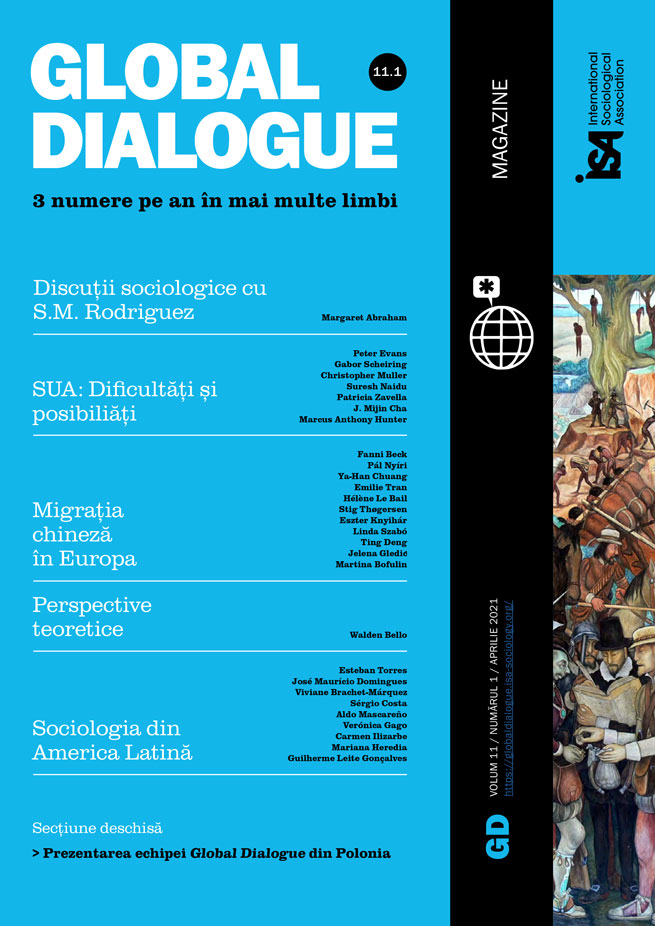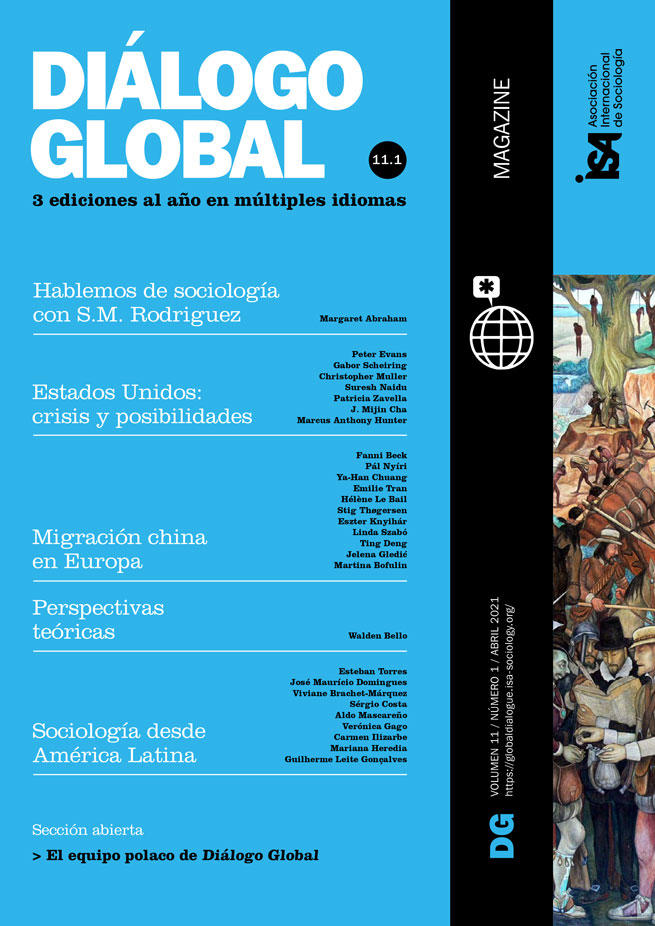The coronavirus pandemic helped temporarily slow populism’s rise and relieve the pressure on status quo politics, contributing to Joe Biden’s victory in the 2020 presidential race. However, Donald Trump’s legacy goes beyond his White House occupancy. Trumpism – and national populism more generally – is an expression of the existential crisis of contemporary capitalism. A second national-populist wave and a potentially even worse version of Trumpism is inevitable if – lured by centrism and blocked by obstructing Republicans – Biden’s administration does not fix underlying social tensions and economic dislocations. Sociology can aid politics in this effort.
Populism as a mode of political leadership that tries to build direct connections to non-elites and use them against elites can have a range of valences. Sometimes it propels redistributive agendas that help dislodge the entrenched privileged. At other times it promotes reactionary, regressive agendas in which the “people” whose interests it claims to represent are a circumscribed subset of society, and the attack on “elites” carefully avoids threatening economic privilege and instead reinforces it. The current populist wave falls into the second category: a reactionary, right-wing variety of populism. Populism in this article refers to this.
Political scientists supply the most prevalent scholarly narratives about the current populist wave. Their forte lies in analyzing voters’ attitudes and politicians’ maneuvers. While it is clear that political tactics – breaking with the norms and institutions of established liberal democracy – are crucial to understanding populism, populist politicians do not operate in a social vacuum. Others emphasize illiberal cultural attitudes that determine the political demand for populism. However, populism is more than just racism. Writing off populist voters as racists makes liberals neglect on-the-ground party structures in working-class communities – a fatal political mistake.
In contrast to political science, sociology has so far played a peripheral role in the populism debate. Sociologists have highlighted how economic change – globalization, deindustrialization, and the shift to skill-intensive service jobs – has altered traditional electoral coalitions. These tectonic changes have undermined social democratic parties’ electoral base and propelled working-class electorates’ rightward shift. Others have shown that when the Left moves right on social and economic policy, the populist Right wins. Qualitative sociologists and ethnographers have complemented this picture by highlighting how shock therapy-inspired social disintegration and decades-long neoliberalization have wreaked havoc with everyday lifeworlds and working-class communities, thereby eroding class identity and paving the way for the nationalist mobilization of economic grievances.
However, one specific sign of capitalism’s existential crisis has so far escaped most sociologists’ attention: workers’ declining life expectancy in deindustrialized, Rust Belt areas and the accompanying deepening of health inequalities. The US offers the most shocking example of this “deaths of despair” epidemic, but other parts of the world – such as the UK and post-socialist Eastern Europe – have experienced similar increases in working-class death rates and growing health disparities.
Throughout most of the twentieth century in the US and Europe, life expectancy had been increasing, the most robust sign of the benefits brought by developments in health care, the welfare state, and economic growth. However, today the world’s most powerful economy is experiencing a completely different trend that fundamentally calls into question the functionality of the US growth model. The mortality of middle-aged white Americans has been increasing since the turn of the millennium. Black workers experienced a similar health crisis three decades ago as the first wave of mass plant closures wreaked havoc with inner-city communities. As the two Princeton economists Anne Case and Angus Deaton highlight in their book, deaths of despair killed 158,000 Americans during 2017, equivalent to a packed Boeing 737 falling from the sky each day for a year.
The three direct causes of this mortality wave in the US are suicides, drug overdoses, and alcohol-related deaths. These are what Case and Deaton call the deaths of despair. They reflect how people feel about their future and value their lives. Deaths of despair are not distributed equally in society. The increase in deaths of despair is confined to workers without a college or university degree. The social dislocation of the American working class is the most crucial background factor.
The loss of stable industrial jobs has profoundly reshaped communities and torn apart working-class culture. New jobs in manufacturing and services tend to be more precarious, with temporary work arrangements, zero-hour contracts, and jobs recast as self-employment on the rise. Ruthless corporate strategies, the absence of countervailing organized power, and a state captured by capital are central to this transformation. The towns that previously constituted the regional backbone of the blue-collar, working-class aristocracy are today homes of cascading social, economic, and health problems – homes of despair. The deindustrialization of the American Rust Belt drives the disintegration of the working class and leads to the rise of acute psychosocial stress and hopelessness. This context is a fertile breeding ground for emotional and mental disorders that often translate into other health problems and addictions over time.
Despite offering a pathbreaking inquiry into deaths of despair, the disciplinary limitations of economics constrain Case and Deaton’s analysis. Echoing the early sociological literature on adverse social consequences of deindustrialization, the authors highlight the centrality of economic dislocation as an upstream determinant of health inequalities. However, instead of unpacking the complexities of these mechanisms and drawing the necessary theoretical and policy conclusions, they stress the exceptionality of the American experience and conclude their book with a rather underwhelming set of propositions concentrating on the need for better regulation of pharmaceuticals and “genuinely free and competitive markets” (Case and Deaton, 2020).
A few years before the onset of declining life expectancy in the US, Eastern Europe experienced a comparable mortality catastrophe, whose magnitude was unprecedented in peacetime in the developed world. Russia alone experienced 3.26 million excess deaths in 1990–99. The post-socialist mortality crisis – the topic of my PhD thesis and several subsequent journal articles – was also connected to the rapid changes that transformed Eastern Europe’s industrial and employment structure. Deindustrialization could have been responsible for one-third of the excess male deaths during the post-socialist mortality crisis in Hungary, while the economic benefits of hosting transnational corporations did not translate into better health. Parallel evidence from Russia confirms the negative psychosocial effect of economic dislocation created by deindustrialization and mass privatization. However, life expectancy has started to rise again in Eastern Europe since the second half of the 1990s. In contrast, the life expectancy of working-class American whites has been declining for twenty years.
The health of people and the health of democracy are intertwined. People left behind in regions struck by diseases of despair, and workers facing precarity and the prospect of downward mobility, have a higher tendency to support populist insurgents. Trump’s popularity in health-deprived regions of the US, the high share of Brexit votes in the unhealthiest towns in the UK hit by years of austerity, and the rising popularity of Lega Nord among workers in deindustrialized towns in Italy are cases in point.
However, political strongmen promising a better life to their voters and “taking back control” only exploit these same people behind the scenes. Elites are the primary beneficiaries of the national-populist mutation of neoliberalism that Trump and “Brexit Boris” represent. Even though inequality undermines economic development in the long run, upward redistribution can bolster growth in the short run. Thus national populists can also attract the support of the national bourgeoisie, foreign investors, and the upper-middle class.
Populists are not the root cause of today’s multiple crises. They are reckless political entrepreneurs who exploit every structural opportunity offered by the crises generated by faulty economic structures. Sociology has great untapped potential in analyzing these underlying economic dislocations – as analyses in Global Dialogue showcase the benefits sociological perspectives can bring to analyzing populism.
Centrist politics and policies protecting the status quo will be insufficient to address the underlying causes of the current populist wave and fix the economic dislocations that also drive deaths of despair. The current conjuncture of demographic and democratic crises calls for profound transformations. Sociologists could have a unique role in finding these solutions by exploiting the discipline’s roots in analyzing social deaths and the social consequences of industrial change. Complementing economists and political scientists, only a sociological approach can map the complex causal pathways that link economic dislocation to the deaths of despair and shed light on the mechanisms through which ill health feeds back into politics to drive the support of populists. The health of democracy and the health of citizens depend on each other.
Reference:
Case A and Deaton A (2020) Deaths of Despair and the Future of Capitalism. Princeton, NJ: Princeton University Press.
Gabor Scheiring, Bocconi University, Italy, and member of ISA Research Committees on Economy and Society (RC02), Social Transformations and Sociology of Development (RC09), Sociology of Health (RC15) and Political Sociology (RC18) <gabor@gaborscheiring.com>




















